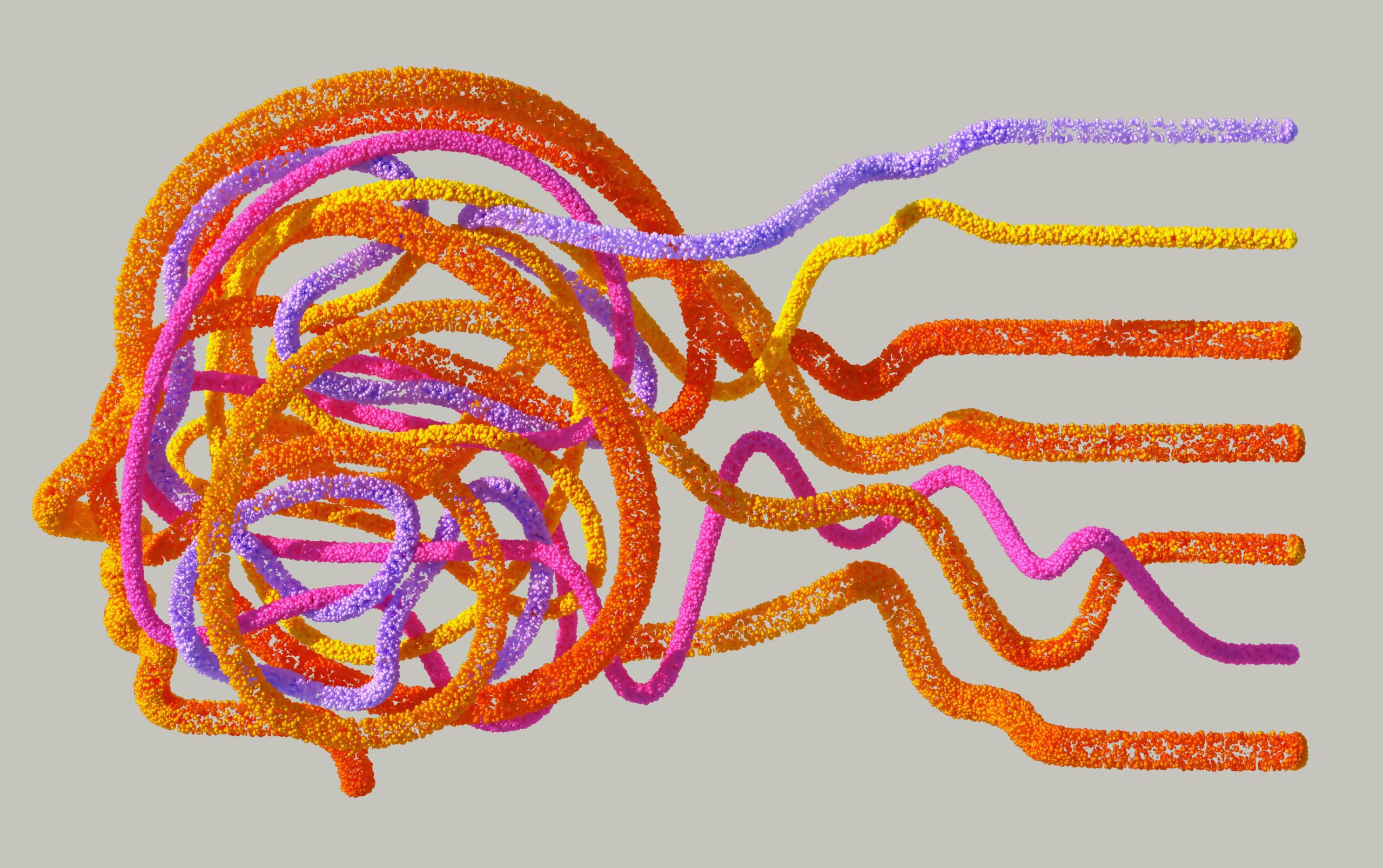The intersection of artificial intelligence and mental health care represents one of the most promising yet ethically complex frontiers in modern medicine. As technology evolves, we stand at a pivotal moment where compassion must guide innovation.
Mental health diagnostics have traditionally relied on human expertise, subjective assessments, and time-intensive evaluations. Today, AI-driven tools promise faster, more accessible, and potentially more accurate diagnostic capabilities. However, this technological leap raises profound questions about privacy, bias, accountability, and the fundamental nature of therapeutic relationships.
🧠 The Revolutionary Promise of AI in Mental Health
Artificial intelligence has already transformed numerous healthcare sectors, and mental health diagnostics are experiencing a similar revolution. Machine learning algorithms can now analyze speech patterns, facial expressions, text communications, and behavioral data to identify potential mental health conditions with remarkable accuracy.
These systems process vast amounts of information that would be impossible for human clinicians to evaluate comprehensively. Natural language processing can detect subtle linguistic markers of depression, anxiety, or suicidal ideation in written or spoken communication. Computer vision algorithms analyze micro-expressions that might escape even trained observers.
The potential benefits are substantial. AI-driven diagnostics could democratize mental health care, reaching underserved populations in remote areas or developing nations. They offer consistency in assessment, eliminating variations in clinical judgment that can occur between practitioners or even within the same practitioner on different days.
Early detection represents another critical advantage. AI systems monitoring digital communications or social media could identify individuals at risk before symptoms become severe, enabling preventative interventions that might avert crises.
The Ethical Minefield: Privacy and Data Security 🔒
The effectiveness of AI diagnostics depends on access to deeply personal information. These systems require data about thoughts, emotions, behaviors, and experiences that many people share only with trusted therapists or never disclose at all.
Privacy concerns emerge at multiple levels. Who owns the mental health data collected by AI systems? How long is it retained? Can it be shared with insurance companies, employers, or law enforcement? The answers to these questions have profound implications for individual autonomy and societal trust.
Data breaches in mental health contexts carry particularly severe consequences. Unlike stolen credit card numbers that can be replaced, mental health information, once compromised, cannot be changed. The stigma surrounding mental illness means that leaked diagnostic data could devastate careers, relationships, and reputations.
Encryption, anonymization, and secure storage protocols provide technical safeguards, but they cannot eliminate risk entirely. Furthermore, seemingly anonymized data can sometimes be re-identified through cross-referencing with other datasets, creating unexpected vulnerabilities.
Consent in the Digital Age
Traditional informed consent procedures may be inadequate for AI diagnostics. How can individuals truly understand what they’re consenting to when the algorithms themselves are “black boxes” even to their creators? The complexity of machine learning systems challenges the very concept of meaningful consent.
Passive data collection presents additional complications. If AI systems analyze social media posts or smartphone usage patterns to assess mental health, at what point does monitoring begin? Many users accept terms of service without fully comprehending how their data might be used for diagnostic purposes.
Algorithmic Bias: The Hidden Discrimination 🎯
AI systems learn from training data, and if that data reflects existing societal biases, the algorithms will perpetuate and potentially amplify those biases. In mental health diagnostics, this problem is particularly insidious because bias can be embedded in ways that are difficult to detect.
Historical diagnostic data often reflects disparities in how mental health conditions have been identified and treated across different demographic groups. Women, for example, have historically been overdiagnosed with certain conditions while men’s symptoms have been minimized. Racial and ethnic minorities have faced both underdiagnosis and misdiagnosis due to cultural misunderstandings and systemic racism.
If AI systems are trained primarily on data from specific populations, they may perform poorly when assessing individuals from different backgrounds. Language models trained predominantly on standard English might misinterpret expressions from speakers of dialects or non-native speakers, potentially confusing linguistic differences with symptoms of mental illness.
Cultural Competence in Code
Mental health symptoms manifest differently across cultures. Expressions of distress, help-seeking behaviors, and even the conceptualization of mental illness vary significantly worldwide. An AI system that doesn’t account for these variations risks misdiagnosis and inappropriate treatment recommendations.
Developing culturally competent AI requires diverse development teams, comprehensive training datasets representing multiple populations, and ongoing validation studies across different demographic groups. This represents a significant investment that commercial pressures might discourage.
The Human Touch: What Technology Cannot Replace 💙
Mental health care fundamentally relies on human connection. The therapeutic relationship between clinician and patient provides not just diagnostic information but also healing through empathy, understanding, and authentic presence. AI systems, regardless of their sophistication, cannot replicate this dimension of care.
Diagnosis in mental health is rarely a purely technical exercise. It involves contextual understanding, nuanced interpretation, and recognition of the unique story each individual brings. While AI can identify patterns and correlations, it cannot fully grasp the meaning of suffering or the complexity of human experience.
There’s also a risk that over-reliance on AI diagnostics could deskill human clinicians. If practitioners become dependent on algorithmic assessments, they might lose the clinical intuition and observational skills that come from direct patient engagement. This could create vulnerabilities when AI systems fail or when cases fall outside algorithmic parameters.
The Irreplaceable Value of Empathy
Receiving a mental health diagnosis is often an emotionally charged experience. People need reassurance, explanation, and compassionate communication. An AI system might accurately identify depression, but it cannot sit with someone’s pain, offer hope, or adapt its communication style to what an individual needs in a particular moment.
The danger lies not in AI itself but in substituting technology for human presence. The optimal approach combines technological capabilities with human wisdom, using AI as a tool that enhances rather than replaces the therapeutic relationship.
🔍 Accountability and Transparency Challenges
When an AI system produces a diagnostic error, who bears responsibility? The algorithm’s creators? The healthcare provider who relied on it? The institution that deployed it? Clear accountability frameworks are essential but challenging to establish.
Many advanced AI systems operate as “black boxes,” producing outputs through processes that are opaque even to their developers. This lack of transparency creates problems for accountability, scientific validation, and patient trust. How can someone challenge a diagnosis if they cannot understand how it was reached?
Explainable AI represents an important research frontier, aiming to create systems that can articulate the reasoning behind their conclusions. For mental health diagnostics, this capability is crucial not just for accountability but for therapeutic value—understanding why a diagnosis was made can itself be part of the healing process.
Regulatory Frameworks and Oversight
Current medical device regulations often struggle to keep pace with rapidly evolving AI technologies. Mental health diagnostic tools may enter the market without the rigorous validation that pharmaceutical treatments undergo. This regulatory gap creates risks for patients and uncertainty for providers.
Effective oversight requires collaboration between technologists, clinicians, ethicists, policymakers, and patient advocates. Regulations must balance innovation with safety, ensuring that AI tools meet high standards without creating barriers that prevent beneficial technologies from reaching those who need them.
Building a Compassionate Framework for AI Mental Health Diagnostics 🌟
Navigating the ethical frontier of AI-driven mental health diagnostics requires intentional commitment to values that prioritize human wellbeing. Several principles should guide development and implementation:
- Patient-Centered Design: AI systems should be developed with meaningful input from those with lived mental health experiences, ensuring technology serves actual needs rather than technological possibilities.
- Transparency: Patients should understand when AI is being used in their care, how it works, and what limitations it has.
- Human Oversight: AI should augment rather than replace human clinical judgment, with trained professionals reviewing and contextualizing algorithmic outputs.
- Equity Focus: Development must prioritize reducing rather than exacerbating mental health disparities, with specific attention to underserved populations.
- Privacy Protection: Data security must be paramount, with robust safeguards and clear limitations on data use and sharing.
- Continuous Evaluation: AI systems should undergo ongoing assessment for accuracy, bias, and unintended consequences.
The Role of Multidisciplinary Collaboration
No single discipline can address the ethical challenges of AI mental health diagnostics alone. Computer scientists bring technical expertise but may lack understanding of clinical nuances. Clinicians understand patient care but may not grasp algorithmic limitations. Ethicists can identify moral frameworks but need practical grounding in both technology and healthcare.
Effective solutions emerge from genuine collaboration where diverse perspectives inform design, implementation, and evaluation. This includes not just professionals but also individuals with mental health experiences whose insights are invaluable.
Looking Forward: A Vision for Ethical AI in Mental Health 🚀
The future of AI-driven mental health diagnostics need not be dystopian or utopian—it can be practical, ethical, and genuinely helpful. This requires deliberate choices about how we develop and deploy these technologies.
Imagine a future where AI tools help identify mental health concerns early, connecting people with appropriate support before crises develop. Where diagnostic assistance enhances clinician capabilities without replacing the therapeutic relationship. Where technology reduces barriers to care while respecting privacy and autonomy.
This vision is achievable but not inevitable. It requires sustained commitment to ethical principles, adequate funding for research addressing fairness and transparency, regulatory frameworks that protect without stifling innovation, and public dialogue about the values we want these technologies to embody.
Education and Public Engagement
As AI becomes more prevalent in mental health care, both providers and patients need education about its capabilities and limitations. Clinicians require training not just in using AI tools but in critically evaluating their outputs and communicating about them with patients.
The public needs accessible information about how AI diagnostics work, what rights they have regarding their data, and how to advocate for themselves in increasingly technology-mediated healthcare environments. Demystifying AI helps build appropriate trust while preventing both excessive skepticism and uncritical acceptance.

Embracing Technology Without Losing Humanity 🤝
The ethical frontier of AI-driven mental health diagnostics ultimately centers on a fundamental question: Can we harness technological power while preserving the human elements that make healing possible? The answer depends on the choices we make collectively.
Technology should serve human flourishing, not the reverse. In mental health care, this means developing AI systems that enhance empathy rather than replacing it, that increase access while protecting privacy, and that reduce disparities rather than encoding them in code.
Success requires vigilance, humility, and commitment to values beyond efficiency and profitability. It demands we ask not just “Can we build this?” but “Should we build this?” and “How can we build this responsibly?”
The potential benefits of AI in mental health diagnostics are too significant to ignore, but the ethical stakes are too high to proceed carelessly. By centering compassion in our technological development, maintaining human oversight and connection, addressing bias systematically, and protecting privacy rigorously, we can navigate this frontier successfully.
The future of mental health care will undoubtedly include AI, but that future’s quality depends on the ethical frameworks we establish today. By insisting that technology serve human dignity, we can create diagnostic tools that not only identify mental health conditions accurately but do so in ways that respect the profound vulnerability of those seeking help. This is the compassionate future we must build together—one where innovation and ethics advance hand in hand, where technology amplifies rather than replaces human wisdom, and where no one is left behind in the rush toward progress.
Toni Santos is a cognitive storyteller and cultural researcher dedicated to exploring how memory, ritual, and neural imagination shape human experience. Through the lens of neuroscience and symbolic history, Toni investigates how thought patterns, ancestral practices, and sensory knowledge reveal the mind’s creative evolution. Fascinated by the parallels between ancient rituals and modern neural science, Toni’s work bridges data and myth, exploring how the human brain encodes meaning, emotion, and transformation. His approach connects cognitive research with philosophy, anthropology, and narrative art. Combining neuroaesthetics, ethical reflection, and cultural storytelling, he studies how creativity and cognition intertwine — and how science and spirituality often meet within the same human impulse to understand and transcend. His work is a tribute to: The intricate relationship between consciousness and culture The dialogue between ancient wisdom and neural science The enduring pursuit of meaning within the human mind Whether you are drawn to neuroscience, philosophy, or the poetic architecture of thought, Toni invites you to explore the landscapes of the mind — where knowledge, memory, and imagination converge.




